The Seán Ó Riada Competition was initiated in 1972 in recognition of the creative life and work of Seán Ó Riada (1931-71). It was initially conceived of as an encouragement to amateur adult Irish choirs to select and perform existing or newly composed original works in the Irish language by an Irish composer. The trophy was presented for the best performance. In 1976, the competition became specifically a composition competition. It was open to composers, born or resident in Ireland, to set a poem in Irish for a cappella choir, no performance applied. In 1978 the competition was further adapted to encourage Irish amateur choirs to commission original works from Irish composers for performance at the festival, the trophy being awarded to the choir. The aim of the competition was threefold (a) to encourage Irish composers to write new works in the Irish language, (b) to widen the accessibility of new works in the Irish language for amateur Irish choirs, and (c) to enhance the existing repertoire of Irish choral music. Following a period when interest in the competition diminished it was discontinued, its format not valued either by composers or choirs.
In 2010 the competition was reintroduced utilising a totally new format, and the novel aspect of scores being entered under Pseudonym to protect the identity of the composer and ensure an unbiased decision on the part of the selection panel. To enhance the status of the composer and provide an incentive, the winning composer attended the Festival and the winning composition was included as one of the works presented and discussed at the Seminar on New Choral Music, organised as part of the Festival’s Choral Symposium. The new format was an instant success. Since 2010 to date, over 200 compositions have been received testifying to the present interest in, and healthy state of Irish composition. Previous winners of the competition include Solfa Carlile, Rhona Clarke, Patrick Connolly, Frank Corcoran, Séamas de Barra, Eoghan Desmond, Amanda Feery, Michael Holohan, Marian Ingoldsby, Donal Mac Erlaine, Simon MacHale, Michael McGlynn, Kevin O’Connell, Criostóir Ó Loingsigh, Donal Sarsfield, James May, Peter Leavy, Norah Constance Walsh, Daragh Black Hynes, Laura Henegan and 2024 winner, Anselm McDonnell. A number of these works have been published by international choral publishing houses.
The Seán Ó Riada Competition is a composition competition which invites the submission of new works from Irish composers. The competition is a collaboration between the Cork International Choral Festival and Chamber Choir Ireland. The winning composition will be selected by a panel, comprising of composers and choral experts. The selected composition will receive its premiere performance during the Festival at a Gala Concert given by Chamber Choir Ireland. The composer of the work will be invited to attend the Festival as its guest.
Composers born, or resident, in Ireland are eligible to apply. Applications are welcomed from both established and emerging composers.
While Chamber Choir Ireland (CCI)—a chamber choir of 16 voices—will give the premiere performance of the work, it should have the potential to be accessible for performance by a wider range of high-standard amateur Irish choirs.
The following parameters apply:
It is desirable that the work be presented in computerised notation (Sibelius or other) A4 PDF format. The text utilised, including its writer and source, should be detailed on a separate page and form part of the score presentation. If handwritten, scores should be legible and suitable for duplication for performance and study purposes in maximum A4 format.
In keeping with best practice, and to ensure the anonymity of composers’ identities in the application, assessment, and selection process the method of application will be as follows.
The assessment panel will consist of a minimum of three persons. Both established composers and persons with choral expertise will be represented on the panel.
Friday 8th December 2023
1. The composer gives permission to the Cork International Choral Festival (CICF) to make sufficient copies of the composition for performance, and other purposes pertaining to the festival. The cost of such reproduction will accrue to the festival.
2. The composer gives permission for a PDF copy of the composition to be made available, for study purposes only, on the Festival’s website.
3. The Cork International Choral Festival will retain a copy of the selected score for archival purposes.
4. An obligatory condition of the award requires the winning composer to be present for the première of the work.
5. In the event that the composer is unable to attend the Festival for reasons the Festival Board finds unacceptable, then the award is declared null and void and the work will not receive its premiere performance by CCI, and no cash prize will be given. The Festival may decide to re-award the prize if such an eventuality arises.
6. The rights of the Premiere performance are assigned to the Cork International Choral Festival (CICF) and Chamber Choir Ireland (CCI)
7. No commission fee will apply to the CICF and CCI in relation to the composition of the work.
8. No costs, apart from accommodation and meals, will accrue to the CICF and CCI in relation to the composer’s attendance at the Festival. Any other costs will be the responsibility of the composer.
9. Any performance of the composition during the Festival may, without payment, be recorded and the Festival shall be entitled to possession of any such recording.
10. The decision of the Assessment Panel is final and no correspondence will be entered into regarding any aspect of its work.
11. The CICF or CCI accepts no legal responsibility in respect of anything pertaining to a composer’s participation in the festival.
Contacts for further information:
Cork International Choral Festival
Civic Trust House
50 Pope’s Quay
Cork
Tel: 00 353 (0)21 4215125
Email: [email protected]
1972 Cantairí Choláiste na hOllscoile, Gaillimh
1973 Cantairí Choláiste na hOllscoile, Gaillimh
1974 St. Stephen's Singers, UCD
1975 Cantairí Choláiste na hOllscoile, Gaillimh
1976 Joint Winners: Jane O'Leary and Michael Dawney
1977 Jerome de Bromhead
1978 Jerome de Bromhead
1979 Séamas de Barra
1980 Alan Cutts
1981 Séamas de Barra - An Tonn
1982 Michael Holohan
1984 Rhona Clarke
1985 Hugh Kelly
1986 Michael McGlynn
1987 No Entries
1988 Kevin O'Connell
1989 No Award
1990 Michael McGlynn
1991 Andrew Sinnott - Na Blátha Craige
1992 No Entries
1993 Marian Ingoldsby
1994 John O'Connor - Guthanna
1995 Briain Ó Dubhghaill
1996 Gerard Victory
1997 Maria Judge - Faoiseamh a Gheobhadsa
1998 Frank Garvey
1999 Oliver Hynes
2000 Mark Keane - Salve 94
2010 Simon Mac Hale - With Heart and Soul and Voice
2011 Patrick Connolly - Geimhridh
2012 Frank Corcoran - Two Unholy Haikus
2013 Solfa Carlile - Upon the Rose
2014 Donal McErlaine - Solomon Grundy
2015 Eoghan Desmond - Mother Goose's Melodies
2016 Amanda Feery - Changed Utterly
2017 Criostóir Ó Loingsigh - Scél Lemm Dúiḃ
2018 Donal Sarsfield - A Grain in the Balance
2019 James May - street after street alike
2020 Peter Leavy - It Will Not Depart
2021 Norah Constance Walsh - On A Quiet Day In the Future
2022 Daragh Black Hynes - Behind This Light
2023 Laura Heneghan - Draíocht na Farraige
2024 Anselm McDonnell - Gallagher

